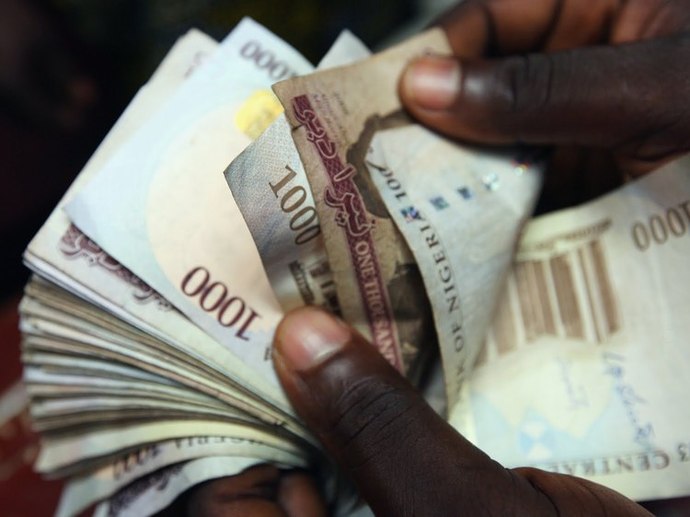
Source; NAN
Common to any election period are bill boards, posters, fliers with self-accredited glories and endorsements placed at catchy areas to seize the attention of by-passers, car owners. This trickles down to unprecedented flows of cash in circulation, precipitated by political juggernauts who are either first-timers or seeking re-election into certain political offices.
A market is created as politicians seek to upgrade their presence in the environs to boost their chances of curling a well full of votes while advert agents seeking a means of livelihood in the harsh economy find comfort in the surplus cash doled out by politicians during electoral seasons.
While some wait till dusk to put up the posters, others take pleasure in tearing down the posters of their opponents. The election season might be a turbulent one for the stock market of a developing country. However, the selfsame period brings bumper harvest for hungry Nigerians.
A windfall is a temporary income that occurs once in a blue moon. Windfalls are highly unpredictable in the real world sense. This is why the great British Economist Milton Friedman categorized income and expenses under permanent and transitory categories.
Permanent income are predictable incomes that an household earns e.g. salaries and are used to fund critical household expenditures – rent, school fees etc. On the other hand, transitory incomes are non-recurring income sources for the household e.g. lottery gains, trading gains etc. They are usually highly unpredictable and risky to earn. This is why they end up being wasted on impulse buying and conspicuous consumption. The psychological nature of an economic agent makes him spend temporary income on temporary consumables. This is why earnings from lotteries are most likely used to finance wild partying, purchase of expensive phones or under-taking luxurious trips below one’s current level of permanent income
The election season is where there is an upsurge in monetary activities as consumers seek to expand their income base. For instance, 100 pieces of a poster are given to each individual for a return of N10,000. This means that for every one candidate with an average of 100 advert agents spends N1,000,000. With an average of 1280 positions (1 Presidential, 36 gubernatorial, 109 senatorial, 360 house of rep and 774 local governments) available with at least 2 contenders, this balls down to an average of N1.28 billion injected into the economy. This means an average of N6 is spent to reach out to one citizen assuming a population of 198 million Nigerians if there are only two contenders for such post. This also implies that an average of 128,000 get employed temporarily during this season.
The downside to election windfalls is the negative effect on price stability. Due to lower unemployment, more wages, money in circulation increases. Much money chasing few goods will result in a rise in the prices of goods and services. This is one of the contributing factors is the recent upwards redirection in inflation rate after 18 months of lesser pressure on prices.
Election windfalls may be key in kick-starting the economy within few months into the electoral cycle, more discretion is advised in consumer spending as lack of financial discipline erodes the purchasing power of the very money collected. This means N10,000 could end up buying N8000 worth of goods.
Funny enough, the electoral season is a period where stocks are stupendously cheap. Adopt the Buffet principle by investing while others are spending. Invest in sound stocks in the stock market or fixed income instruments now when others are running away and watch the value appreciate within the next one year. Saving is key and very lucrative in situations like this. No impulse buying, invest your electoral windfalls and yield great returns.